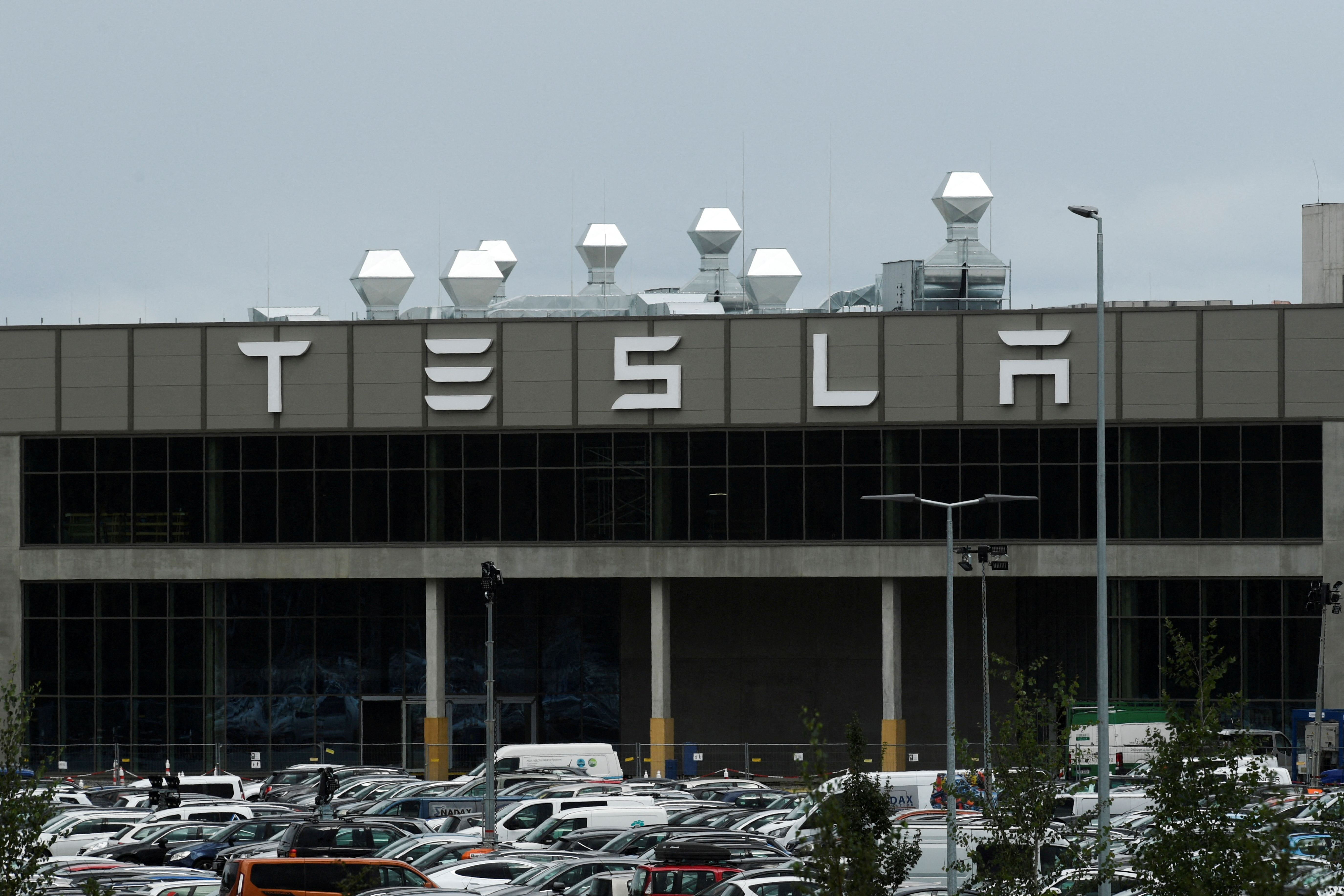[ad_1]

A general view shows the Tesla logo on the Gigafactory in Gruenheide near Berlin, Germany, August 30, 2022. REUTERS/Annegret Hilse/File Photo Acquire Licensing Rights
BERLIN, Aug 23 (Reuters) – Tesla (TSLA.O) lowered the production target of its German plant to 4,350 a week in July and August after hitting 5,000 a week in March, and plans to reduce it further, according to a Business Insider report citing internal documents and anonymous sources.
The U.S. carmaker had posted on X, the social media platform formerly known as Twitter, in late March that it hit 5,000 cars per week at the plant in Gruenheide near Berlin, but workers who declined to be named told Business Insider that this was a one-off and average output since then had been much lower, the article said.
Tesla said in June it was hiring fewer temporary workers than it did in the beginning because they were no longer needed but that its production targets were on track.
Business Insider said pictures showing Tesla’s internal workflow software indicated that the U.S. EV maker had lowered its target for July and August to 870 cars per day.
Even this goal was not always reached, with just 692 cars produced on July 25 and 806 on July 28, according to the pictures of the software published in the report.
The internal target had since been adjusted further down to 750 cars per day, amounting to less than 4,000 a week, the article said, citing unnamed workers at the plant.
Tesla did not immediately respond to a Reuters request for comment. Business Insider said the company did not comment on a series of questions on the plant’s output.
The carmaker has slashed prices several times in the United States, China and other markets since late last year, and increased discounts and other incentives to reduce inventory, as it tries to shield against competition and economic uncertainty.
Tesla announced in July it planned to expand the Gruenheide factory’s capacity to 1 million cars per year, but did not provide a timeline and has previously declined to comment on when it would reach 6,000 cars a week at the plant.
Output hit 4,000 cars per week in late February, ahead of a production schedule seen by Reuters, but appears to have slowed down since then, according to the Business Insider report.
Reporting by Victoria Waldersee, Editing by Friederike Heine
Our Standards: The Thomson Reuters Trust Principles.
[ad_2]
Source link
